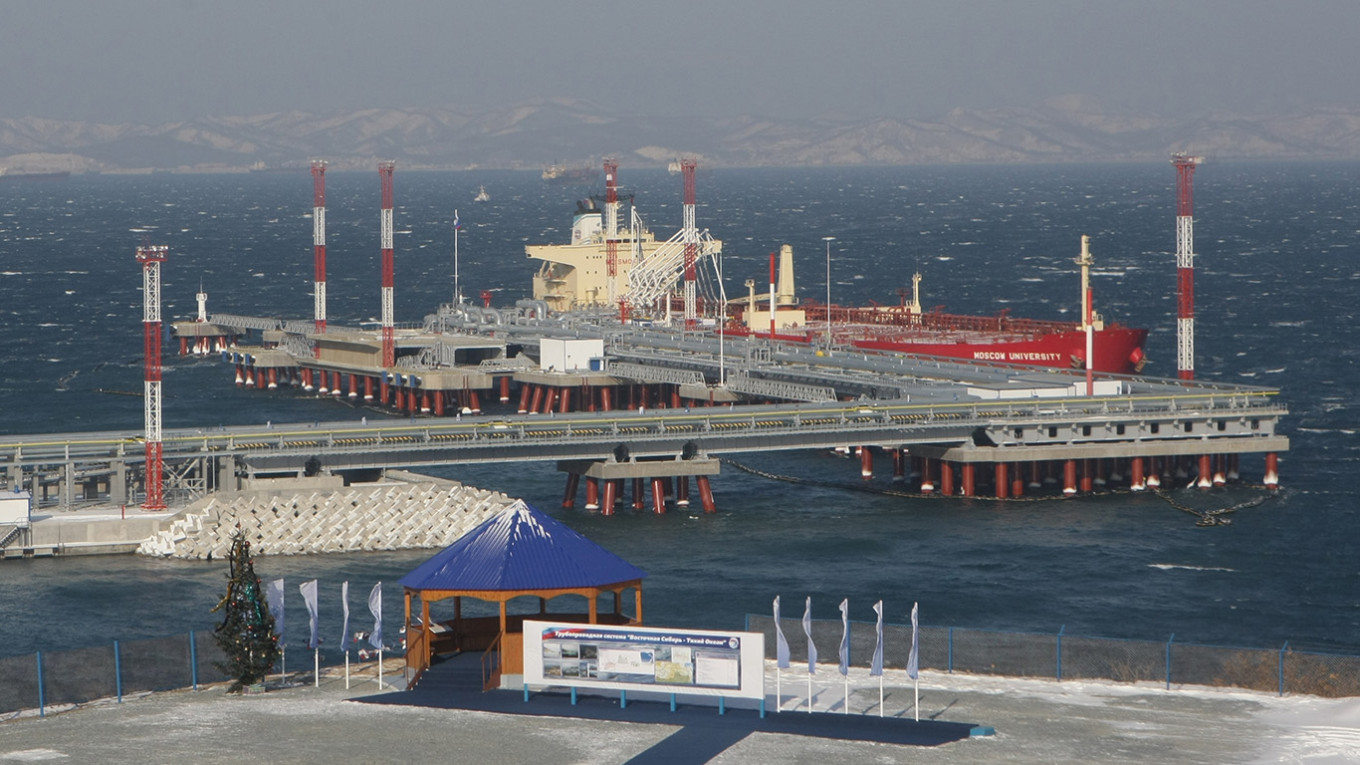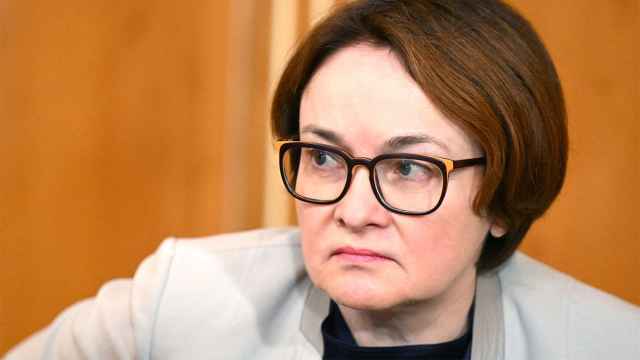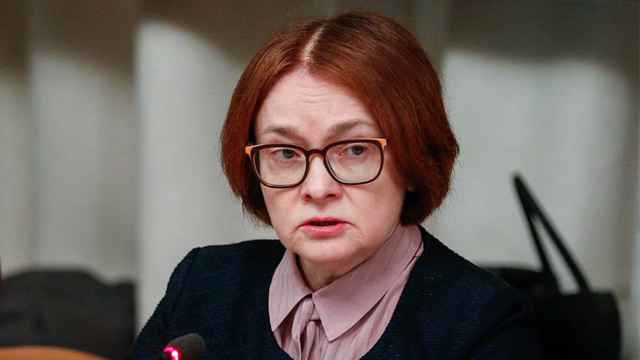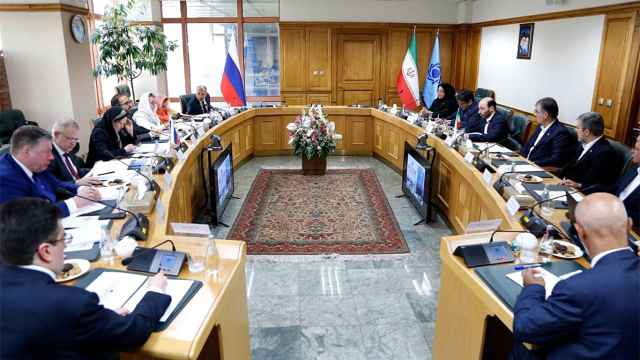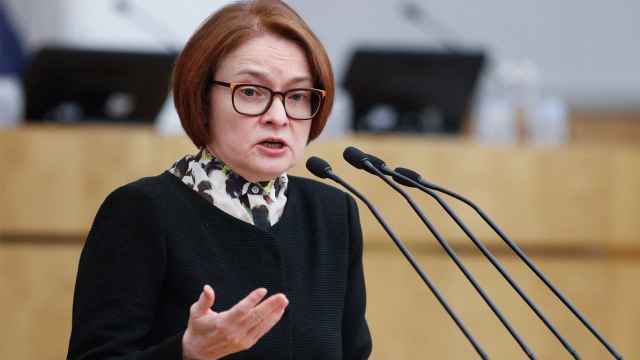Russia’s Central Bank chief warned Tuesday that falling global oil prices could strain the country’s public finances, raising hopes among some in Ukraine that Moscow’s ability to fund its war effort would be hampered as a result.
Oil prices have slid amid mounting recession fears fueled by U.S. President Donald Trump’s aggressive tariff policies. Energy revenues make up roughly one-third of Russia’s annual budget.
Trade wars “usually lead to declining global trade and... perhaps [falling] demand for our energy resources,” Central Bank chief Elvira Nabiullina told Russian lawmakers. “The risks are there,” she said, adding that “we always prepare for such risks.”
Russia’s oil revenues fell 10% year-on-year in the first quarter to $31 billion, the Finance Ministry said Tuesday, warning of further declines “due to the weakening price environment.”
Ukraine, which has long criticized countries that continue to buy Russian energy, said Monday it hoped the price drop would squeeze the Kremlin’s war budget.
“The lower the oil prices, the less money Russians will have to fund their war,” Andriy Yermak, chief of staff to Ukrainian President Volodymyr Zelensky, wrote on social media.
Russia’s benchmark Urals crude was trading near $50 a barrel, down 15% since March and at its lowest level since 2023, according to market data.
President Vladimir Putin said last year that Russia was spending nearly 9% of its GDP on defense and security, a level not seen since the late Soviet era.
Economist and investor Yevgeny Kogan told AFP that while defense spending could take a hit, any impact would likely be limited and delayed.
“There may be a decline, but a minor one and probably not in the moment,” he said.
Russia’s financial reserves remain strong. As of March 1, the country’s National Welfare Fund — a rainy-day fund built up from years of oil profits — held around $138 billion in assets. Roughly $39 billion of that is considered “liquid” and can be readily sold to raise cash.
Asked about the falling oil prices, Kremlin spokesman Dmitry Peskov said Monday that Russian authorities are “very closely watching in order to minimize the consequences of the economic storm.”
A Message from The Moscow Times:
Dear readers,
We are facing unprecedented challenges. Russia's Prosecutor General's Office has designated The Moscow Times as an "undesirable" organization, criminalizing our work and putting our staff at risk of prosecution. This follows our earlier unjust labeling as a "foreign agent."
These actions are direct attempts to silence independent journalism in Russia. The authorities claim our work "discredits the decisions of the Russian leadership." We see things differently: we strive to provide accurate, unbiased reporting on Russia.
We, the journalists of The Moscow Times, refuse to be silenced. But to continue our work, we need your help.
Your support, no matter how small, makes a world of difference. If you can, please support us monthly starting from just $2. It's quick to set up, and every contribution makes a significant impact.
By supporting The Moscow Times, you're defending open, independent journalism in the face of repression. Thank you for standing with us.
Remind me later.


